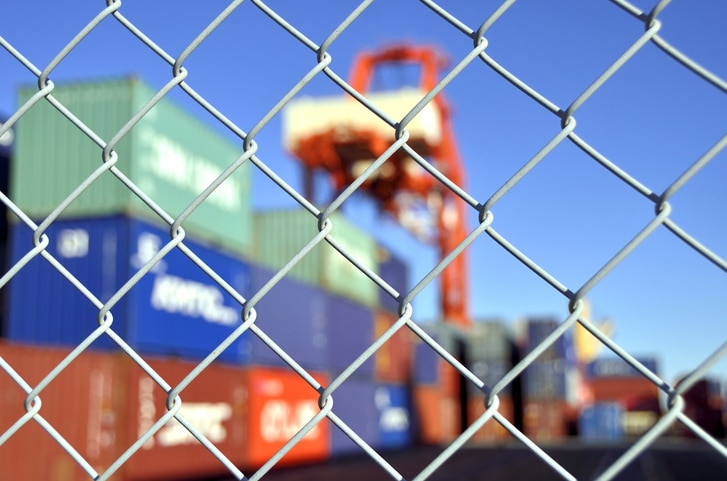Our services include: Transactional Advice & Guidance • Legal Advisory Opinions • Restricted Party Lists Screening Support • Risk Assessments • Compliance Programs and Procedures • Training • Audit Support • Internal Investigations • Uyghur Forced Labor Prevention Act
Organizations with an exposure to economic sanctions, export controls, and/or forced labor risks are strongly encouraged to undertake the necessary measures for ensuring compliance with applicable laws and regulations. As a trusted export compliance advisor, we assist clients in identifying and taking control of such risks in their overall corporate compliance efforts, including for their respective OFAC sanctions compliance and/or export compliance programs.
These legal authorities are complex and constantly changing based on U.S. foreign policy and national security concerns, impacting international business and trade. Our OFAC lawyer has extensive experience providing clients across all industrial sectors, with counseling and representation, including for OFAC’s Russia, Cuba, and Iran sanctions programs.
Organizations that have export controls or OFAC (Office of Foreign Assets Control) sanctions compliance risk-exposure in their business operations can rely on our firm to provide as-needed transactional advice and relevant legal guidance on applicable OFAC programs, the Bureau of Industry and Security’s (BIS) Export Administration Regulations (EAR), and/or the Department of State’s Directorate of Defense Trade Control’s (DDTC) International Traffic in Arms Regulations (ITAR). No issue or question is too small.
With extensive subject matter expertise, we provide organizational clients with formal legal opinions on issues invoking U.S. economic sanctions and/or export controls laws and regulations, in furtherance of their overall export compliance and OFAC sanctions compliance efforts.
Organizational clients can rely on our subject matter expertise to resolve whether transactional counter-parties identified by their restricted party screening tools as potential matches – including against OFAC’s SDN List or the BIS Entity List – are indeed true or false positive results.
Risks under OFAC sanctions and export controls laws and regulations are vulnerabilities that if not properly addressed or ignored, can lead to violations, monetary and criminal penalties, as well as reputational harm. We assist organizational clients in assessing their respective sanctions and export controls risks for: (1) specific transactions; (2) their overall business operations to design or update their OFAC sanctions and export compliance programs/controls; or (3) mergers and acquisitions.
We assist organizational clients in designing best-in-class export compliance and/or OFAC sanctions compliance programs, and updating their existing programs and procedures by identifying any deficiencies, industry benchmarking, and proposing relevant remedial measures for implementation.
We provide various levels of OFAC sanctions and/or export controls training courses tailored to our organizational clients’ respective export compliance needs.
To maintain a sharp and effective export compliance and/or OFAC sanctions compliance program, it must be routinely tested and recalibrated. We assist clients in conducting audits of their respective compliance programs, including identification of weaknesses and deficiencies, and recommending remediations for any compliance gaps.
If an organization receives information that suggests it may have engaged in potential violations of U.S. economic sanctions or export controls laws and regulations, it must decide whether to conduct an investigation and potentially disclose any apparent violations to the relevant U.S. Government agencies. We assist clients in conducting their internal investigations, preparing any voluntary self disclosures to the Government, and designing robust remedial measures for their overall OFAC sanctions and/or export compliance programs.

The Uyghur Forced Labor Prevention Act (UFLPA) adds to existing U.S. laws prohibiting the importation of goods that are produced wholly or in part by convict, forced, and/or indentured labor. It requires U.S. Customs and Border Protection (CBP) to apply a presumption that imports of all goods produced wholly or in part in the Xinjiang Uyghur Autonomous Region of China, or by entities identified by the U.S. Government on the UFLPA Entity List, are presumed to be made with forced labor and are prohibited from entry into the United States. It also applies to goods made in, or shipped through, China and other countries that include inputs made in Xinjiang. Although the presumption is rebuttable, shipments can be detained, excluded, and/or seized and forfeited by CBP.
We assist clients in their compliance efforts with the UFLPA, in order to proactively prevent the direct or indirect use of forced labor in their supply chains. We also assist clients in communicating with CBP to rebut this presumption and to file petitions with regards to any related Customs detention or seizures and forfeiture actions.

475 West Washington Blvd, Los Angeles, California 90292
Tel: 1-310-439-3728
E-Mail: info@meshkatlaw.com
Privacy Policy
Copyright © 2025 Meshkat Law, P.C. All Rights Reserved.